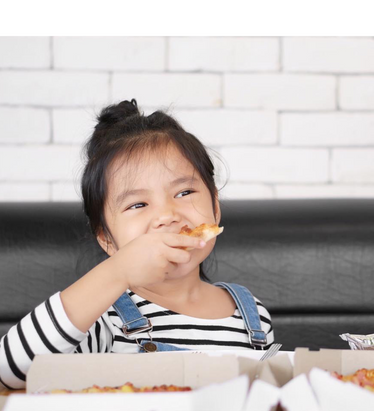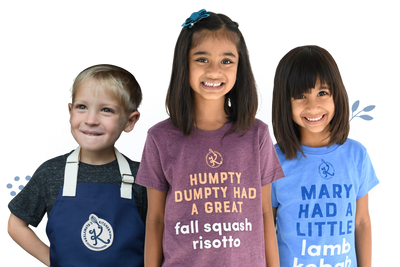
Resources
How Broadening Your Kids' Palates Expands Their Minds
Did you know food can be tied to empathy? See how you can get your kids to broaden their palates and, in turn, open their minds.
My former boss and colleagues love to tease me for my most frequently-used phrase at work: “I have a question.”
They can tease all they want—I can’t change the fact that will probably always have a question. I know I was a curious child, because my parents like to tease me about it too. I more often asked “why” than “how”, maybe because I’m inspired by motivations, but I’m not the most organized creator! Both questions, however, speak to a fundamental desire— the desire to understand something from a perspective with which I am not yet familiar. And that desire speaks to another fundamental desire— the desire to empathize. Empathy is the ability to step into the life of another person with the goals of understanding their feelings and motivations, and to then use that understanding to inform and change your own actions. Empathy has an actionable outcome, which “makes it different from kindness or pity.”*
There is no question that we all should be working to create a more empathetic society, which begins with each of us individually striving to be more empathetic, and to cultivate empathy in our children.
I believe that the easiest way to develop this fundamental skill is through food. Conceptually, it might seem difficult to explain the idea of empathy to a small child. But children are naturally inquisitive, and open and even eager to influence. It’s we grownups who have that sense of curiosity dulled out of us. Food offers a way for us to spark that curiosity about the lives of people with different perspectives than our own in a very low-risk way. In my own life, I know that I keep asking “why” because food taught me early on that different is delicious.
Food and flavor are deeply tied to emotion and memory. I believe that they should also be tied to adventure and open-mindedness. A curiosity about new ingredients, flavors, and scents can lead to such boundless depths of knowledge—and also make the unfamiliar into an exciting quest instead of something to be feared. I once had a conversation with a little girl about nutmeg—she smelled the ground spice and thought that it reminded her of Christmas cookies. There was a foundation tied to something she loved. I told her that my family grew nutmeg trees in India, and asked if she wanted to see what they looked like. Until that point, she didn’t know that the smell was a spice, that the spice came from a tree, and that the tree was in another country. I showed her a picture of the tree, and then the fruit, which looks like an apricot, and the seed that comes out of it—and that it is actually two spices, not just one! She was absolutely hooked. Her imagination took over, and what a beautiful thing to watch. When I told her that nutmeg and mace are included in spicy, savory Indian food and not just sweets, she immediately wanted to try the food, much to the surprise of her parents. When faced with an unfamiliar dish, she was excited, not scared to try it because she had made a personal connection with it—a discovery of a commonality in something that previously had seemed completely unknown to her. And I genuinely believe that that desire to celebrate rather than fear the unfamiliar will extend into her life in general, beyond the new foods that she’ll try.
One of my favorite features of our first book is that Kalamata realizes that being brave is delicious, and that finding out what makes you unique is something to be celebrated. The next step is finding out what makes everyone else unique in order to celebrate it—and what better way to do that than to ask questions about someone else’s food? People love different flavors, tastes, and scents. People have different preferences on communal eating, eating with their hands, or which utensils to use. Learning empathy through food is about discovering those tastes and preferences, and changing the way you view your own. I know that my lunchroom experiences would have been very different if kids had asked me those questions instead of assuming that my food was gross. We have a real opportunity to foster a generation of more curious, courageous, and compassionate kids through food. Let’s all do our best to keep the joy of curiosity and adventure alive in our kids—and ourselves—with every new bite.

